The Best Picture Winners of the 21st Century, Ranked from Worst to Best
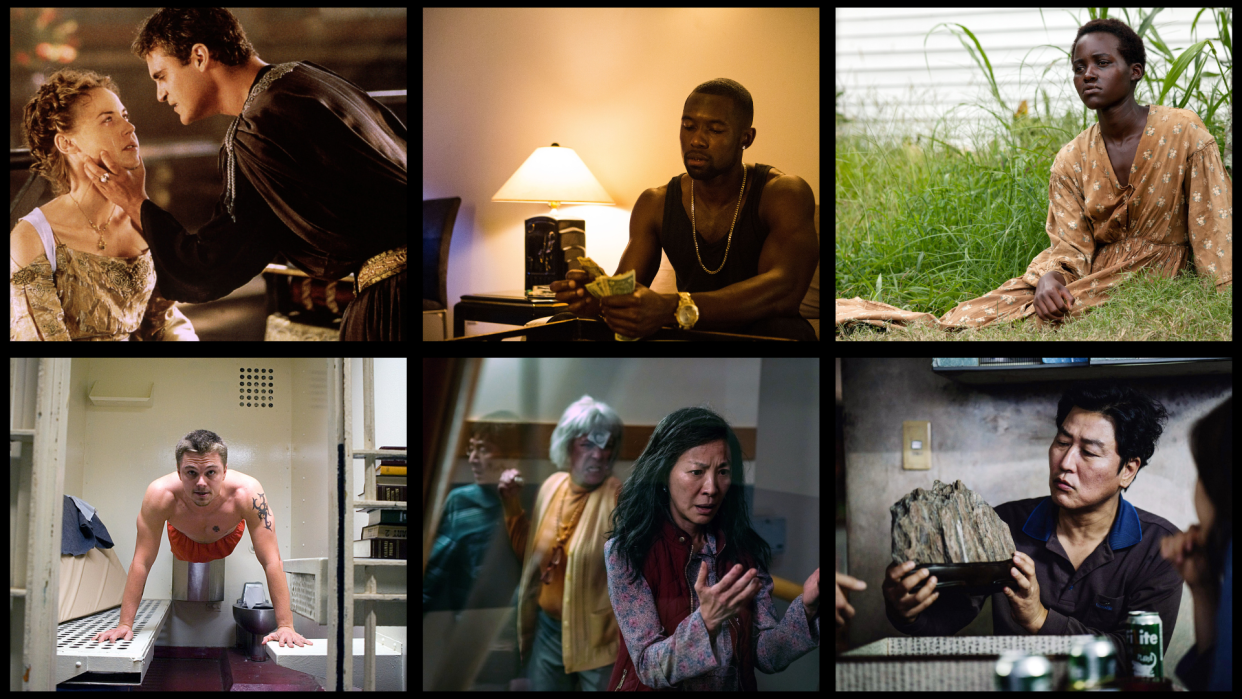
- Oops!Something went wrong.Please try again later.
- Oops!Something went wrong.Please try again later.
- Oops!Something went wrong.Please try again later.
- Oops!Something went wrong.Please try again later.
[Editor’s note: this list was originally published in December 2017. It has since been updated with new entries.]
The 21st Century is only two decades old, but its first batch of Best Picture winners already paints an extraordinary portrait of a world in flux. From historical epics to intimate digital indies, from a musical that riffs on showbiz standards to period drama that reflects on present crises, from a sparse modern western to an overstimulating multiverse martial arts story, these 24 films range from “problematic” to “perfect” and hit all points in between. More than that, they illustrate Hollywood’s evolving definition of greatness and the relationship between the film industry and the times that forge it.
More from IndieWire
Here are the 24 Best Picture winners of the 21st century, ranked from worst to best.
With editorial contributions from David Ehrlich and Eric Kohn.
24. “Crash” (dir. Paul Haggis, 2005)
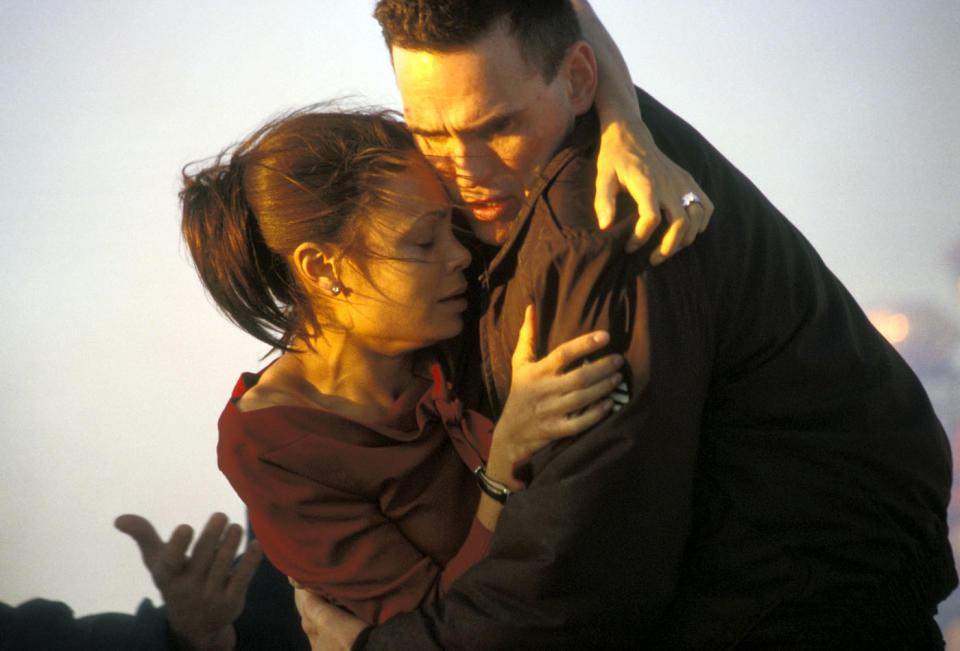
“Brokeback Mountain” deserved better, but the Academy didn’t know it. Paul Haggis’ painfully obvious ensemble drama about racial prejudices in Los Angeles was a smug, one-note drama designed to make white liberals feel good about themselves. (It took a decade for “Get Out” to put this recurring tendency in its place.) The spin-the-racial-wheel structure careens from a black filmmaker to a Persian immigrant to a Hispanic locksmith as it heads toward a tidy climax in which everyone’s bias comes to a head. The movie was released early in the year and gradually crept back into the conversation so the Academy’s homophobic contingency had a backup plan as “Brokeback” gained momentum. But perhaps that’s unfair: Some very reasonable people like “Crash,” which is so sincere and eager to make its purpose obvious that support for the movie was synonymous with endorsing its good intentions. It’s possible to appreciate the outlook of “Crash” while still recognizing that it’s a bad movie; unfortunately, Oscar season circa 2005 wasn’t interested in subtle distinctions. —EK
23. “Green Book” (dir. Peter Farrelly, 2018)
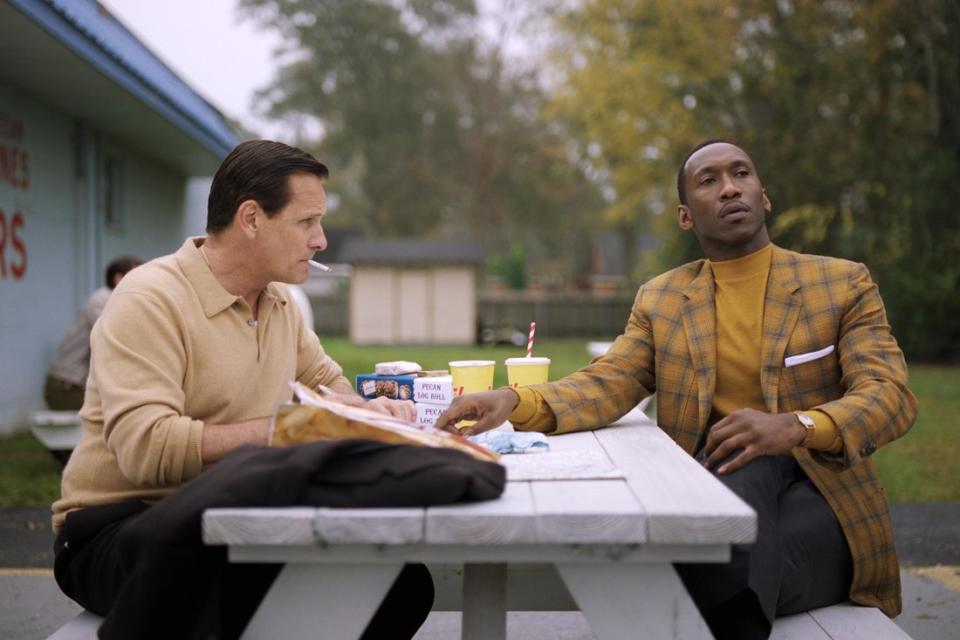
There are the Oscar wins that age poorly, and then there are the ones that are embarrassing in the moment. “Green Book” fits squarely into the latter category. Peter Farrelly’s buddy dramedy was an unexpected and cringeworthy Best Picture coronation absolutely no prognosticator wanted, one that took the trophy from a bevy of infinitely more deserving films — most prominently “Roma,” Alfonso Cuarón’s acclaimed semi-autobiographical drama. At the time, the film — which charts the developing friendship between Black jazz pianist Don Shirley (Mahershala Ali) and his white driver Frank Vallelonga (Viggo Mortensen) — was subject to scrutiny over its historical inaccuracy. But even if everything that occurs in “Green Book” actually happened, this is still a mawkish, broad, and grossly sentimental film, one that has no business receiving an Oscar nomination, let alone a win. At the time of the 2019 awards, the Academy was still riding the minor cred they received from “Moonlight’s” triumphant win: the throwback to the “Driving Miss Daisy” days firmly killed that off. —WC
22. “CODA” (dir. Sian Heder, 2021)
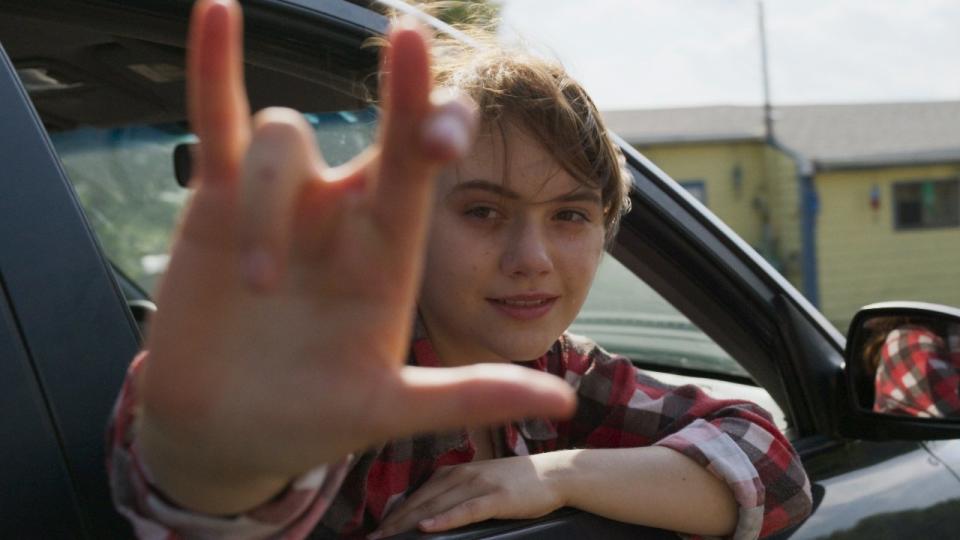
It’s astonishingly easy to forget that “Coda” is a Best Picture winner, which isn’t entirely the fault of Sian Heder’s overly earnest family comedy. As you may recall, the 2022 Oscar ceremony had some onstage drama that largely overshadowed the actual awards entirely. But getting forgotten is probably the best case scenario for “CODA,” because it managed to escape the scorn it deserved as an utterly horrific film. This fundamentally dishonest and completely empty crowd-pleaser premiered at 2021’s Sundance Film Festival, and yet bizarrely managed to sustain itself past the festival hype and trick people into looking at it as a real film instead of a glorified sitcom episode. Part of its success can be attributed to how the “CODA” camp positioned its Oscar as a win for representation, given the film’s largely deaf ensemble. And Troy Kotsur, Daniel Durant, and Marlee Matlin indeed give warm and lived-in performances as the deaf fishing family that the film ostensibly revolves around. The issue is that in practice, they’re all merely props supporting the obnoxious story of the family’s hearing daughter (Emilia Jones) and her quest to get into music school, a plot that fails to rise above Disney Channel Original Movie standards of quality and creates a reductive binary between deafness and singing (not for nothing, the film didn’t exactly receive universal accolades from the actual deaf community). Maybe the Academy was desperate for an easy, uncomplicated, and likable film in the wake of the pandemic. But even if “CODA” isn’t the worst film that’s ever won Best Picture, it might be the single most disposable. —WC
21. “The King’s Speech” (dir. Tom Hooper, 2010)
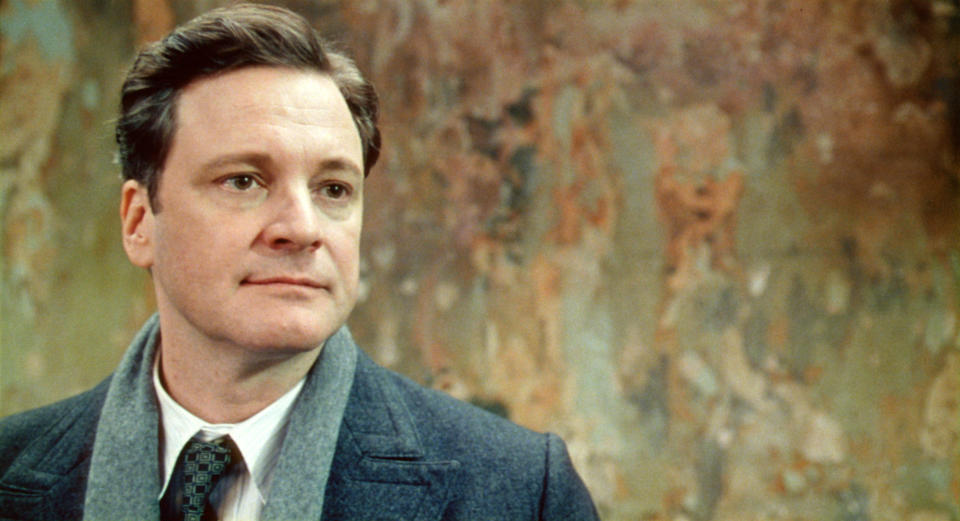
Tom Hooper’s snoozy character study about the stuttering future King George VI’s attempt to get over his impediment and deliver a declaration of war on Germany demonstrates the worst tendencies of Oscar bait: weighty subject matter given a quirky, entertaining twist. That was the Weinstein formula in a nutshell. Colin Firth does his thing in the lead, carrying this gimmicky period piece along as well as possible, but “The King’s Speech” never manages to wrestle free of its obvious framework. At this point, as best picture winners go, it speaks to another era — when the most boring, unadventurous option is automatically the consensus choice. —EK
20. “Argo” (dir. Ben Affleck, 2012)
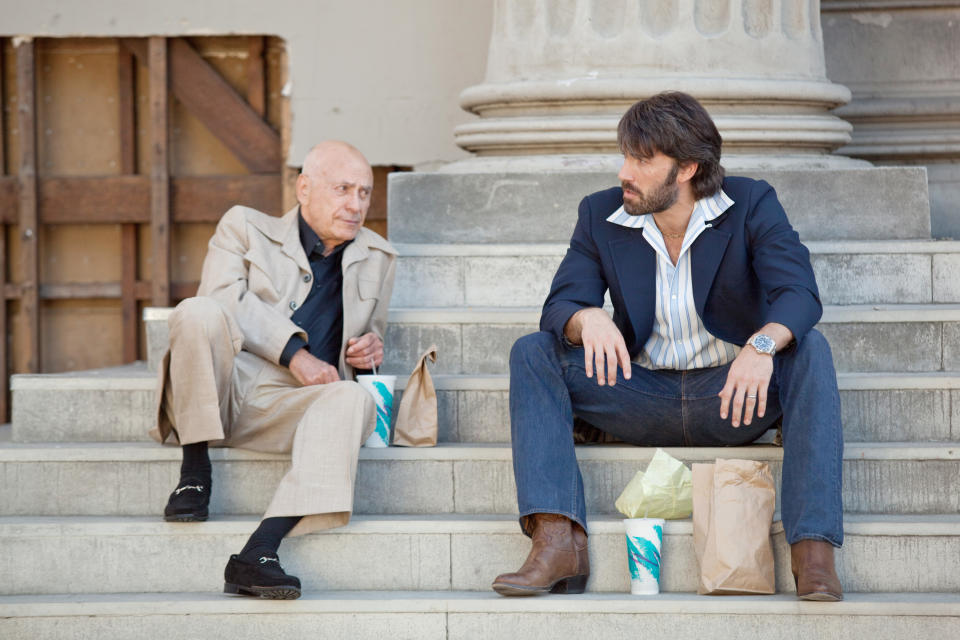
It’s crazy to think that, only a few years ago, Hollywood awarded their highest honor to a glorified TV movie because they felt bad for Ben Affleck. And the only reason they felt bad for Ben Affleck was because they forgot to nominate him for their highest individual honor. Oscar narratives sure take on a life of their own. Of course, as is often the case, “Argo” doesn’t fully deserve the scorn it continues to receive for being an undeserving Best Picture winner; it’s a fine little historical thriller, smartly crafted and suspenseful from start to finish. There’s not much to it beyond the fun of watching the guy from “Good Will Hunting” sneak a bunch of Americans out of Iran during the Revolution, but that is fun. Affleck knows how to put a good story together, and it’s hard to regret sitting through anything that stars Bryan Cranston, John Goodman, Kerry Bishé, Victor Garber, Richard Kind, and/or Clea DuVall. Still… it’s never a great sign when a movie gives the impression that it directed itself. —DE
19. “The Shape of Water” (dir. Guillermo del Toro, 2017)
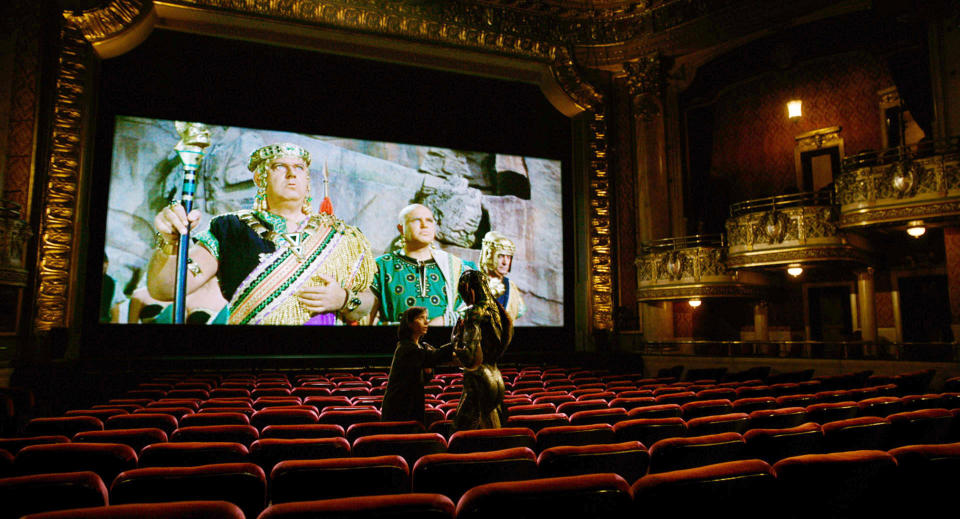
In theory, “The Shape of Water” should be an exciting film to see win Best Picture. A sci-fi romance about a woman falling in love with a fishman in the ’60s, from “Pan’s Labyrinth” director Guillermo del Toro? Hell yeah! Then you actually watch the film. There are things worth praising about “The Shape of Water” — Sally Hawkins’ wonderful performance in the lead, the gorgeous production design, and the visual effects that went into Doug Jones’ amphibious leading man — but it’s a curiously bland and unengaging monster love story, one that manages to ruthlessly trim anything potentially off-putting from its seemingly out-there premise to create a broad, Oscar-friendly product (complete with some “power of cinema” nonsense that prompts more eye rolls than anything else). Del Toro has made some incredible films, but “The Shape of Water” and its cloying, empty sentiment is the auteur at his most toothless and artistically uninteresting. —WC
18. “Chicago” (dir. Rob Marshall, 2002)
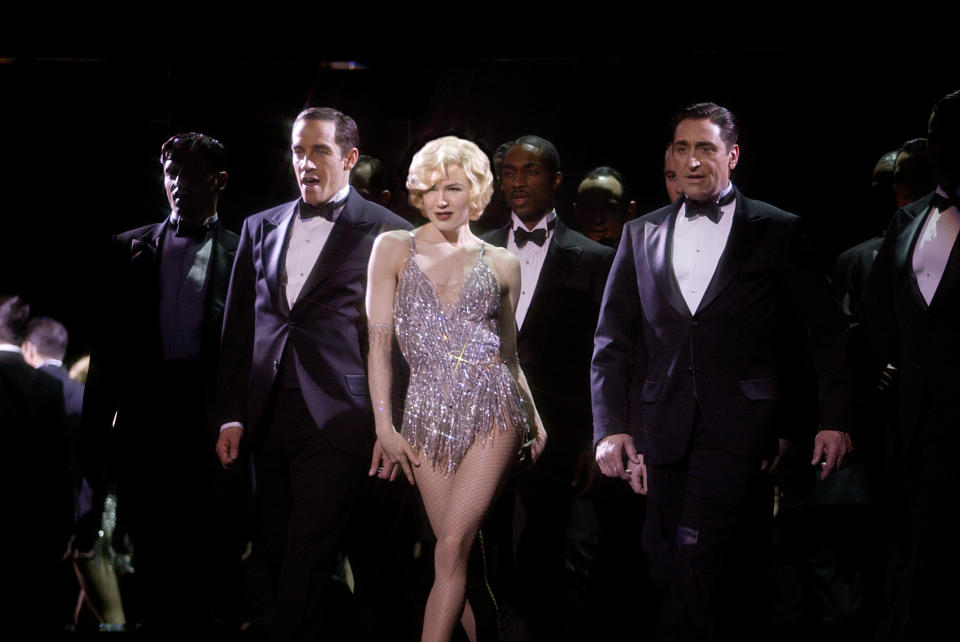
Hardly the worst of the Hollywood musicals that have plagued the screen since the turn of the century, Rob Marshall’s feature debut is a rather modest little movie for something that precipitated monstrosities on the magnitude of “Les Misérables,” “Phantom of the Opera,” and “Rock of Ages.” All razzle dazzle and no real substance, “Chicago” essentially just offers you a front-row seat at a Broadway theatre; Marshall blindly embraces the cabaret vibe of Fosse’s original show, directing the adaptation like someone who got to reach for the stars but only knew how to shoot for the stage. Every exterior sequence just feels like a glorified set change, and any attempts to gussy up the story ultimately reveal how thin it was in the first place. Still, Renée Zellweger is a phenomenal Roxie Hart (“The Press Conference Rag” is a highlight), and Richard Gere is a delightfully slimy Billy Flynn. Fun fact: Not a single human being has actually watched this film since 2003. —DE
17. “A Beautiful Mind” (dir. Ron Howard, 2001)
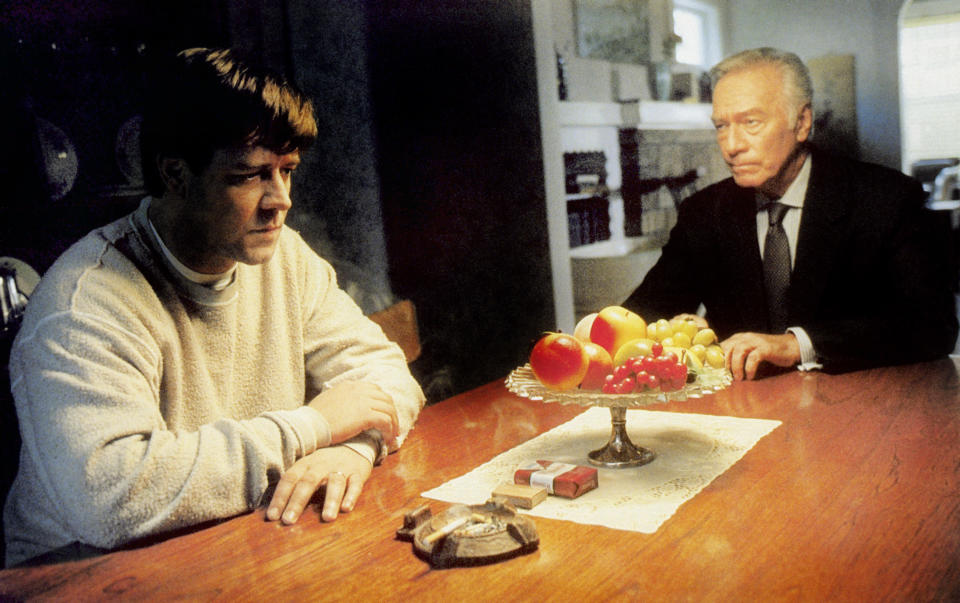
Ron Howard’s story of brilliant economist John Nash (Russell Crowe), whose astonishing ability to decipher Soviet code for the Pentagon is upended by his bouts of paranoid schizophrenia, was a major best picture contender even before the cameras started rolling. Howard’s involving direction, guided along by Akiva Goldman’s screenplay, gives Crowe a role ideally suited to his dazed expression — an ideas man perpetually lost in thought. None of that makes “A Beautiful Mind” a great movie, but in the pantheon of obvious Oscar bait, it’s one of the least offensive entries, a sturdy biopic that overextends its self-importance but more or less hits its emotional beats on cue. —EK
16. “The Artist” (dir. Michel Hazanavicius, 2011)
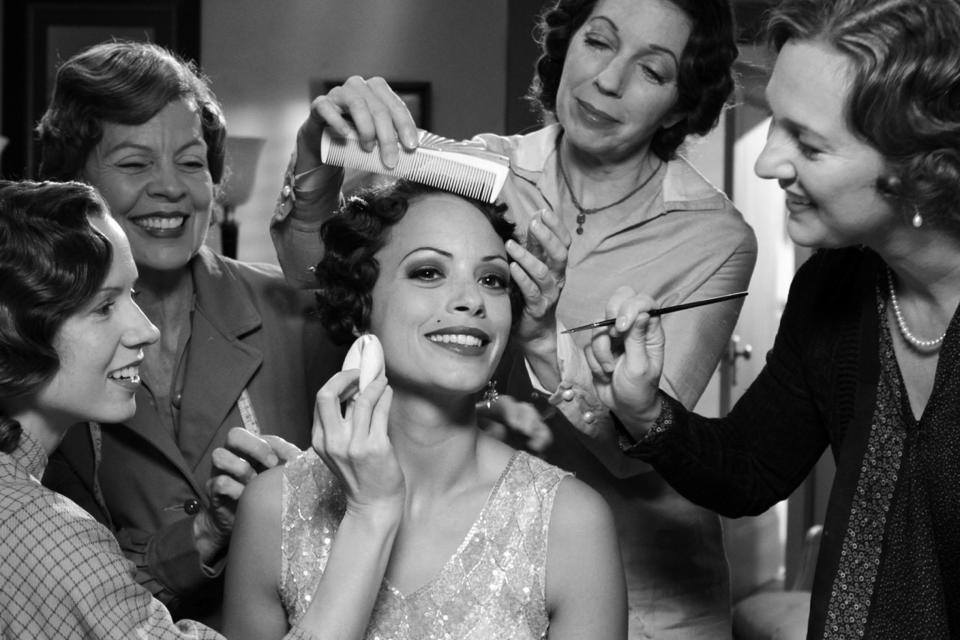
100 minutes of empty throwback charm, “The Artist” was a lovely and innocuous little movie before Harvey Weinstein got his dirty hands on it and made the low-budget French comedy into an Oscar-winning punchline. When Michel Hazanavicius’ cute homage to silent cinema first premiered in competition at Cannes, it was rightfully seen as a crowd-pleasing bit of fluff in a lineup defined by portentous masterpieces like “House of Tolerance” and “Melancholia.” By the time it swept to the stage of the Kodak Theatre the following year, this peppy riff on “Singin’ in the Rain” had become regarded as the kind of milquetoast, masturbatory nonsense that can turn an awards season into an endless slog. Don’t blame star Jean Dujardin for that, who does a wonderful job of channeling Gene Kelly, or Berénice Bejo, a delightful ingenue who shines as a delightful ingenue; some of their scenes together are almost worthy of Stanley Donen. And don’t you dare blame Uggie, whose tell-all memoir reveals the full depth of his performance. This is just show business. —DE
15. “Slumdog Millionaire” (dir. Danny Boyle, 2008)
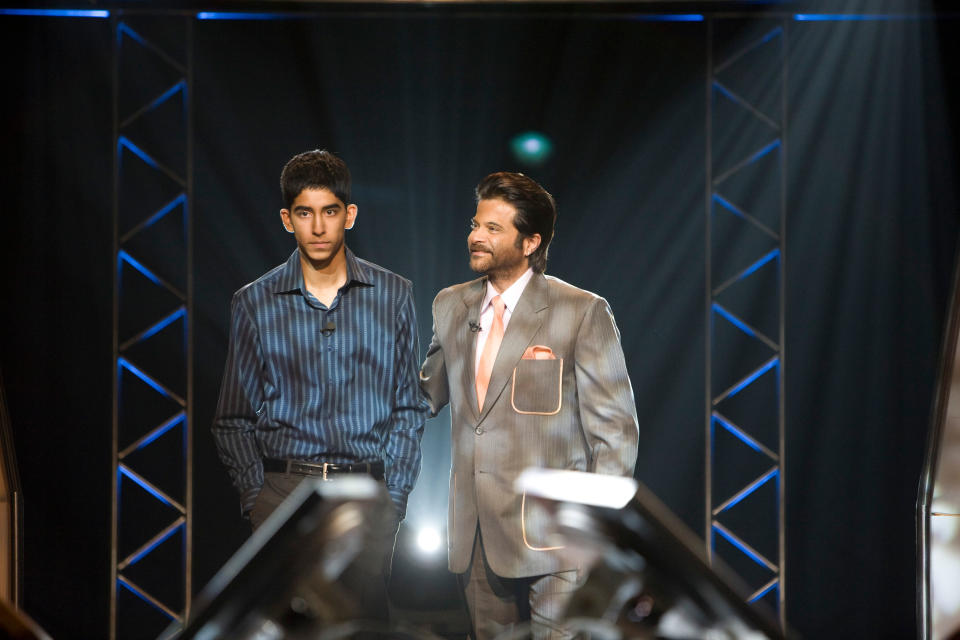
Is “Slumdog Millionaire” the weirdest movie to ever win Best Picture? Its triumph at the Oscars seems almost as unlikely as Jamal Malik’s on “Who Wants to Be a Millionaire?,” and that show was literally rigged against him (why Sony Television ever agreed to let one of their flagship programs get besmirched like that is still a mystery). How could a poor chaiwala from a Juhu slum become rich overnight and then perform an infectiously choreographed dance with the beautiful love of his life!? Such is the power of cinema. Danny Boyle’s Indian fairy tale won people over with its propulsive energy, revising classic Bollywood tropes for international audiences through a rags-to-riches story about the value of dreams (or is it destiny?) in an economy that’s fixed against you. None of it is very nuanced, and all of it is very Danny Boyle, but the colorful and vividly emotional tale caught on with even casual moviegoers, which might be the film’s greatest homage to the Hindi blockbusters that inspired it. —DE
14. “Birdman (or the Unexpected Virtue of Ignorance)” (dir. Alejandro G. Iñarritu, 2014)
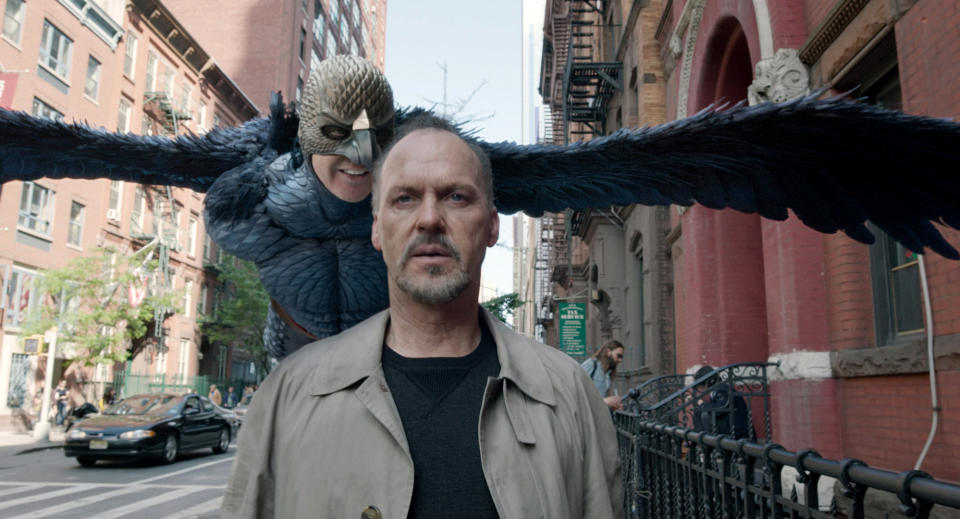
“Boyhood” was robbed, considering that Richard Linklater pushed the boundaries of filmmaking by telling a story over 12 years, while Alejandro G. Iñarritu made a fast, fun look at artistic vanity in the face of commercial exhaustion. Still, at least the winner had plenty going on. On the face of it, “Birdman” is a ridiculous exercise in style, an obvious, over-the-top bid to make Michael Keaton relevant again, but that’s also part of its meta charm. The swirling camerawork and staccato rhythms of the soundtrack put viewers firmly within the confines of Keaton’s head, and it’s one of the most energetic insights into the rough-and-tumble nature of showbiz since “All That Jazz.” Hollywood likes to salute its own legacy, but “Birdman” turns it inside out; in retrospect, its best picture win may have been the turning point that set the stage for more unorthodox Oscar contenders. —EK
13. “Million Dollar Baby” (dir. Clint Eastwood, 2004)
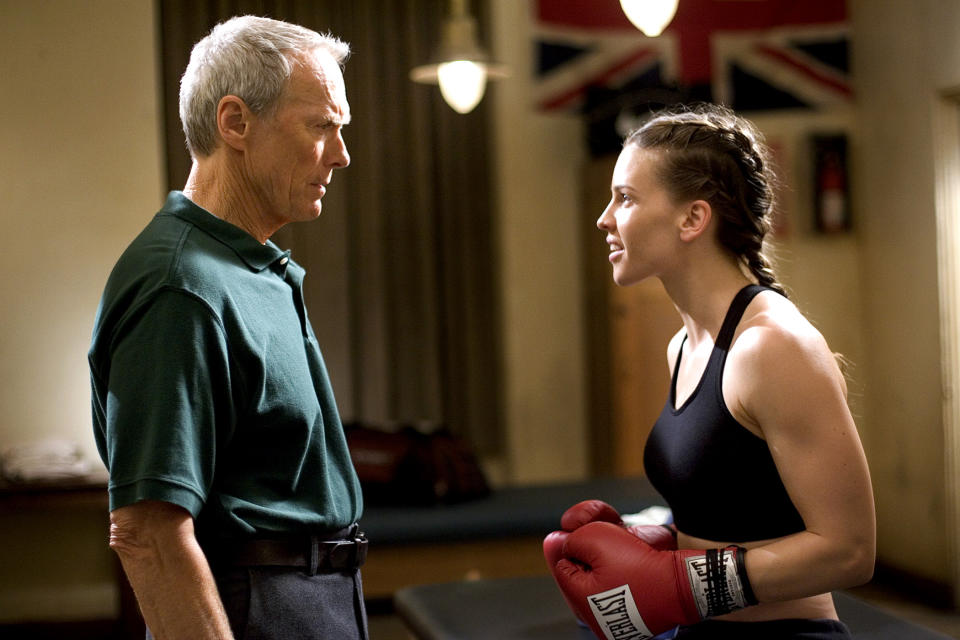
A lean, mean, welterweight of a movie that ends with a punch to the gut and leaves a more lasting bruise than anything Clint Eastwood has made since, “Million Dollar Baby” is an old-fashioned melodrama in the guise of a somber — but relatively standard — boxing drama. Eastwood’s on-screen presence helps give the film some extra gravitas, while Hilary Swank delivers a memorably feisty performance as a natural fighter whose ambition gets the better of her. The chemistry between the two leads is clear and immediate, and a half-blind Morgan Freeman shows up to help ease even the most stubborn members of the Academy into the film’s comfortable rhythms. And then, just when you think you’ve got a handle on things, Eastwood socks you by revealing that this nice underdog story is actually a stone-cold morality play about the American Dream and how quickly it can have to be deferred. Paul Haggis’ screenplay is solid but characteristically schematic, but Eastwood’s blue-collar direction helps keep things real… at least until the third act, when a handful of cartoonish new characters tip upset the balance and leave the film feeling like less of a knockout than a split decision. —DE
12. “Nomadland” (dir. Chloé Zhao, 2020)

It’s only been four years since “Nomadland” was released, and yet Chloé Zhao’s acclaimed western about the lives of modern-day nomads in the margins of the United States already feels like it has fallen out of fashion among cinephiles and Film Twitter types (personally, we blame Marvel). And maybe if “Nomadland” was released in any year besides 2020, when there were generously 12 other films it had to compete with, the sparse portrait of the modern American West wouldn’t have managed to nab the win. Certainly, there are serious issues with Zhao’s portrait of a woman (Frances McDormand) who willingly embraces the nomadic lifestyle following the death of her husband, traveling from town to town in pursuit of seasonal work. It’s often overly romantic in its portrayal of the lives of people in economic disrepair, bizarrely determined to avoid any political leaning, and unbalanced in its attempt to pair professional actors like McDormand and David Strathairn with Zhao’s docudrama approach. Still, despite these flaws, “Nomadland” doesn’t lack in ambition: it’s a gorgeously shot film with real craft and thought to it, which is more than you can say about far too many Best Picture winners. —WC
11. “Gladiator” (dir. Ridley Scott, 2000)
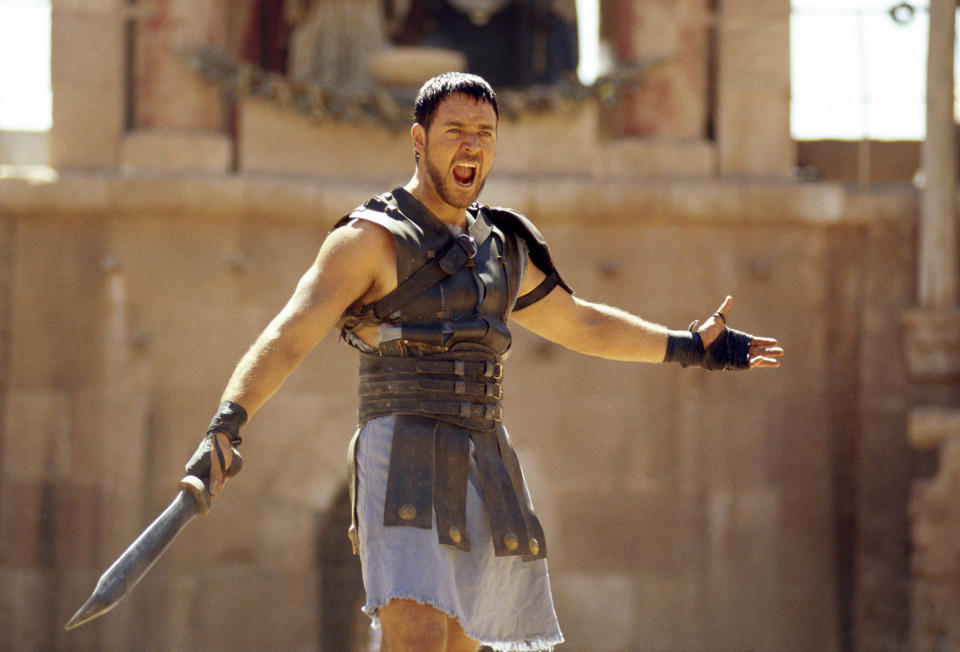
“Are you not entertained!?” These days, it’s unlikely that a major studio would even agree to make an original spectacle like “Gladiator,” as the Academy Awards are dominated by indies that have a greater appeal to voters than they do to the population at large. But back in the halcyon days of 2000, right before the digital revolution came along and changed the game, historical epics still fit into the Oscars as naturally as a cigar fits in Ridley Scott’s mouth. And so we got “Gladiator,” a muscular, somewhat rousing dad movie that benefited from a plot so simple Joaquin Phoenix could sum it up in just three sentences: “The general who became a slave. The slave who became a gladiator. The gladiator who defied an emperor.” More memorable for its full-throated yelling than it is for its storytelling, Scott’s film is the brawny sort of entertainment that Hollywood used to believe themselves capable of making. It’s not particularly moving, and its sinister influence on shaky-cam action scenes is not to be overlooked, but the movie did make Russell Crowe fight a tiger, and for that we should always be grateful. —DE
10. “Everything Everywhere All At Once” (dir. Daniel Kwan and Daniel Scheinert, 2023)
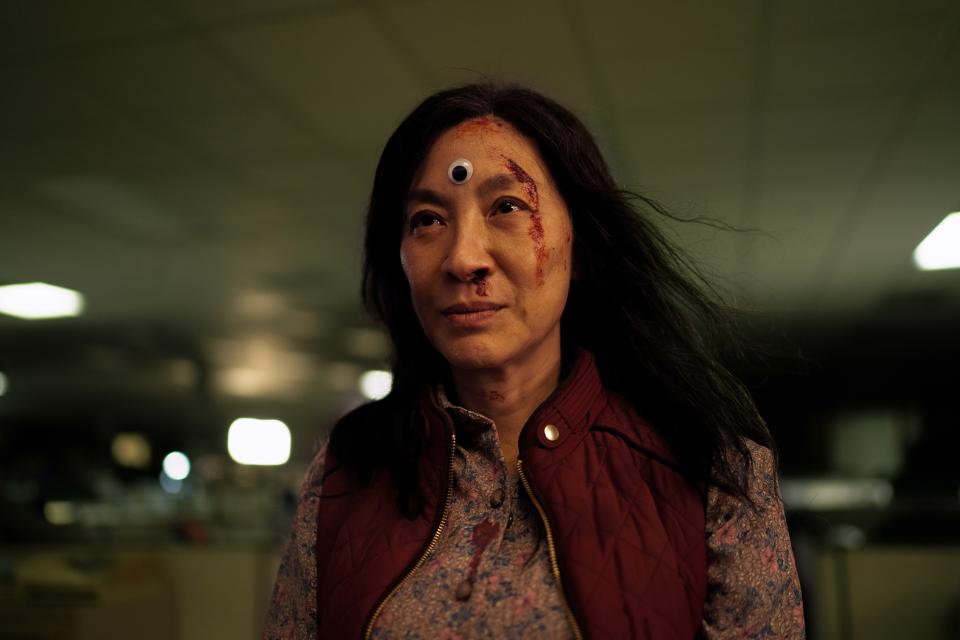
Every awards season invites its share of exhausting discourse, but the lead-up to the 2023 Oscars proved particularly exasperating, with nasty back and forth between “Everything Everywhere All at Once” fans and detractors that felt particularly ironic given the action comedy’s “power of kindness” messaging. Removed from the thick of the Twitter battles that have been fought in its name, it’s much easier to appreciate Daniel Kwan and Daniel Scheinert’s multiverse story for its strengths while being evenhanded regarding its weaknesses. Its story of a Chinese immigrant (Michelle Yeoh) mother forced to confront her mistakes and regrets to save the multiverse is a good 20-30 minutes too long, with a plethora of obnoxious jokes and gags that stay well past their welcome (nobody, in the world, needs to reference those hot dog fingers ever again) and a bluntness in messaging that doesn’t mix well with its attempts at surreality. But at its best, it tells a moving story of growth and familial reconnection, featuring world-class performances from Ke Huy Quan, Stephanie Hsu, and especially Yeoh, who practically holds the entire film together through her committed, charismatic, career-best work. Ultimately, any movie that gets Yeoh an Oscar win has to be a force for good in the world. —WC
9. “The Hurt Locker” (dir. Kathryn Bigelow, 2009)

The first entry in the most exciting period of Kathryn Bigelow’s career finds her transforming the experiences of a bomb detonation unit in Iraq into a remarkable feat of suspenseful filmmaking. Bigelow broke the Academy’s glass ceiling by becoming the first woman to win an Oscar for best directing, but no one could argue that a progressive agenda pushed her to the top more than the sheer brilliance of her achievement here, as she takes the familiar circumstances of straight-faced men risky their lives in dreary, dusty landscapes and make that risk into a deeply visceral experience. The gut-punch of the finale suggests that for a select few in the heat of the action, the intensity of risking one’s life for dubious reasons is addictive. It’s an astonishing slow-burn thriller with real ideas, and Mark Boal’s journalistic screenplay gives each scene an undercurrent of realism that cuts deep. —EK
8. “Spotlight” (dir. Tom McCarthy, 2015)
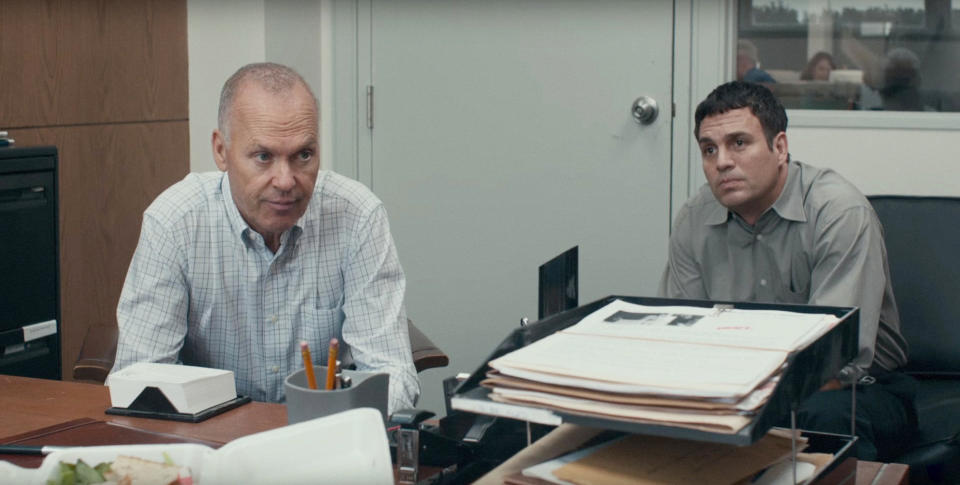
In “Birdman,” Michael Keaton delivered on the rare challenge of a role that actually called for overstatement. That attribute is nowhere to be found in Tom McCarthy’s “Spotlight,” in which Keaton heads up a robust ensemble cast as the morally conflicted leader of a Boston Globe reporting team. An intelligently paced portrait of the muckraking 2001 efforts that led to countless revelations of sexual abuse in the Catholic Church, the tone of “Spotlight” echoes Keaton’s nuanced turn. As much as “Spotlight” salutes journalistic achievements, it works best when probing its shortcomings. There’s no finer barometer for studying this struggle than Keaton’s performance, which embodies the internal process of trying to do the right thing — and instead achieving the opposite effect. Its Best Picture win somehow feels even more timely now than it did in the spring of 2016. —EK
7. “The Departed” (dir. Martin Scorsese, 2006)
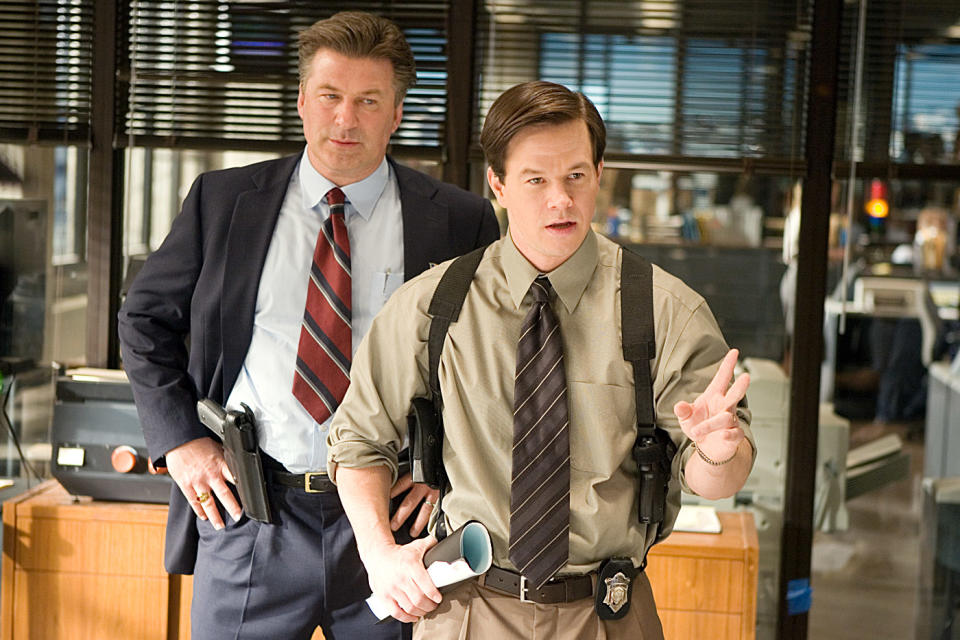
One day, hopefully not that far off from now, historians will reflect on the cinema of the early 21st century and recognize that it was a golden age for Martin Scorsese. Maybe — hold on to your hats — the golden age. Galvanizing the director’s flirtation with Leonardo DiCaprio into a beautiful partnership, “The Departed” is a textbook example of how to (and why to) remake a foreign hit from a Western point of view. Scorsese leverages Andrew Lau and Alan Mak’s “Infernal Affairs” into a knotted Boston crime saga that bristles with local flavor and a uniquely American sense of loneliness. “The Departed” riffs on Scorsese’s earlier gangland classics without infringing on them, DiCaprio’s fevered performance becoming a perfect foil for Matt Damon’s natural smarminess and helping to give the movie a feeling all its own. And if that long-rumored “Toni Erdmann” remake never happens, at least this endlessly re-watchable epic gave us one last great showcase for what made Jack Nicholson special. —DE
6. “12 Years a Slave” (dir. Steve McQueen, 2014)
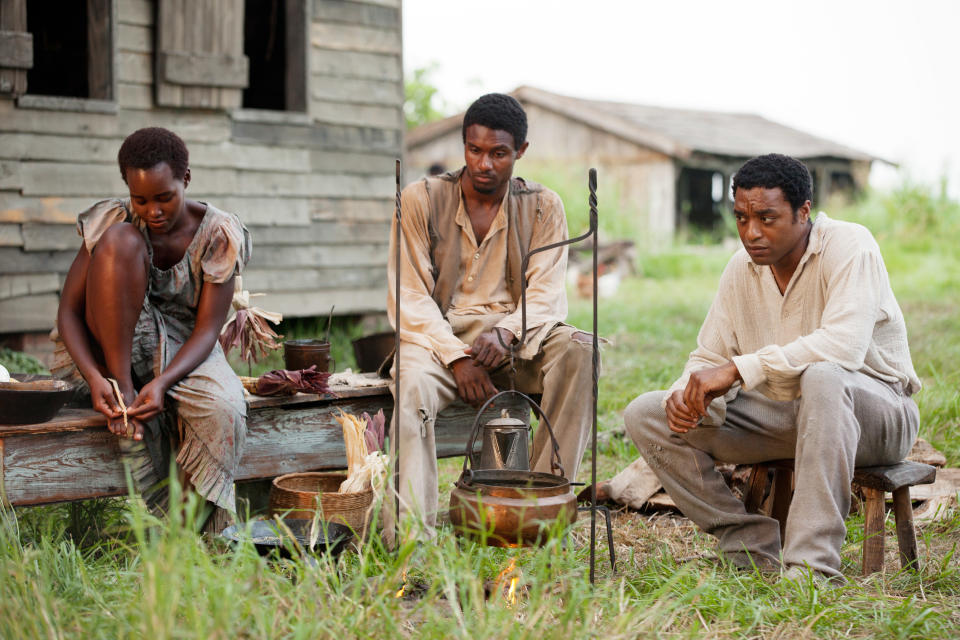
Steve McQueen’s measured portrait of northerner Solomon Northup’s tumultuous experience being kidnapped into slavery was Oscar bait before it even existed, so it’s a small miracle that the result is so much more than that: a gorgeous, lived-in world that acknowledges the realities of slavery in extraordinary detail, reckoning with a dark chapter in American history while taking none of it for granted. Chiwetel Ejiofor was robbed of a best actor win, and McQueen was the unlucky auteur who had to go toe-to-toe with the director of “Gravity.” Thankfully, he still got his moment to bask on the stage anyway, celebrating a poetic accomplishment that communes with the past while giving it renewed immediacy. —EK
5. “Oppenheimer” (dir. Christopher Nolan, 2023)

There are two ways to think about what makes a film worthy of Best Picture. The first is to consider the award the way the Academy positions it, as an honor bestowed upon the single greatest film of the year, no matter the subject matter, the genre, the tone, the country it’s from, or how big or small it is. The second is to view it as an achievement recognizing the greatest in truly Hollywood filmmaking, the kind of grown-up, propulsive, expansive epics that used to dominate the winner’s circle. Very rarely does a film fit both criteria, but there’s a reason that “Oppenheimer” was one of the most obvious winners in the history of the Academy. Christopher Nolan’s epic about the creation of the atomic bomb and the downfall of J. Robert Oppenheimer (Cillian Murphy) ticks almost every box we think of when we think of an Oscar winner: Expensive, ambitious, massively scaled, star-studded, with a weighty historical story at its center. But it’s also truly the absolute peak of that type of movie, a finely crafted, gorgeous, and perfectly calibrated story of great men and how their ambition leads to ruin that’s smart and propulsive, horrifying and heartbreaking, with a haunting performance from Murphy at its center and an incredibly deep supporting cast as his support. Its third act is a bit divisive, but the film’s pivot to the petty feuds and crushing banality of bureaucrats is both underrated-ly (intentionally) funny and truly daring, the smartest touch Nolan makes in the entire film. “Oppenheimer” feels like the movie that the director has been attempting to make his entire career, and if part of the reason for its award season steamroll was a “he’s overdue” narrative, at least it happened with what will likely be Nolan’s greatest masterpiece. —WC
4. “The Lord of the Rings: The Return of the King” (dir. Peter Jackson, 2003)
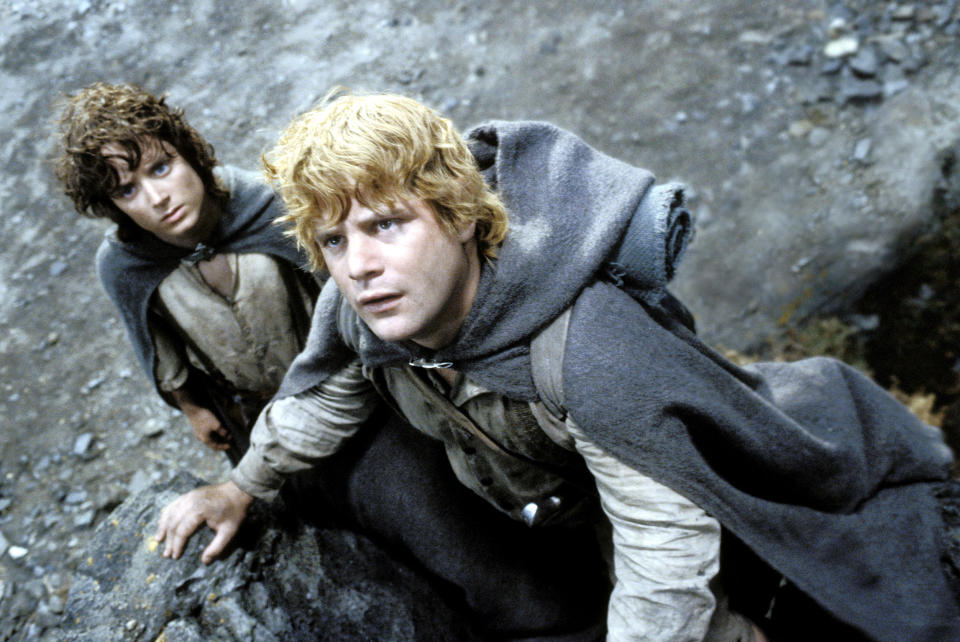
No movie has ever won more Oscars than “The Return of the King,” and yet the climactic chapter of Peter Jackson’s (first) trilogy still feels insufficiently appreciated. For one thing, it’s a 203-minute epic that feels like it goes by for only a fraction of its length, Jackson turning one of the most familiar novels in the English language into a fresh and immediate heart-in-your-throat adventure on par with the best of David Lean. Yes, the film’s victory was obviously in honor of the franchise as a whole. And yes, that epilogue does have quite a few parts to it. But “The Return of the King” also stands on its own two (hairy) feet, gracefully mining the rich veins of emotion that Jackson has laced throughout the previous two episodes. Also, each of the film’s many different endings packs a solid punch, and the slow-motion sincerity of those final moments somehow makes you feel as though 10 hours of bittersweet beauty are welling up all at once. And not for nothing, but, that Annie Lennox song over the closing credits is a banger for the ages. —DE
3. “No Country for Old Men” (dir. Joel and Ethan Coen, 2007)
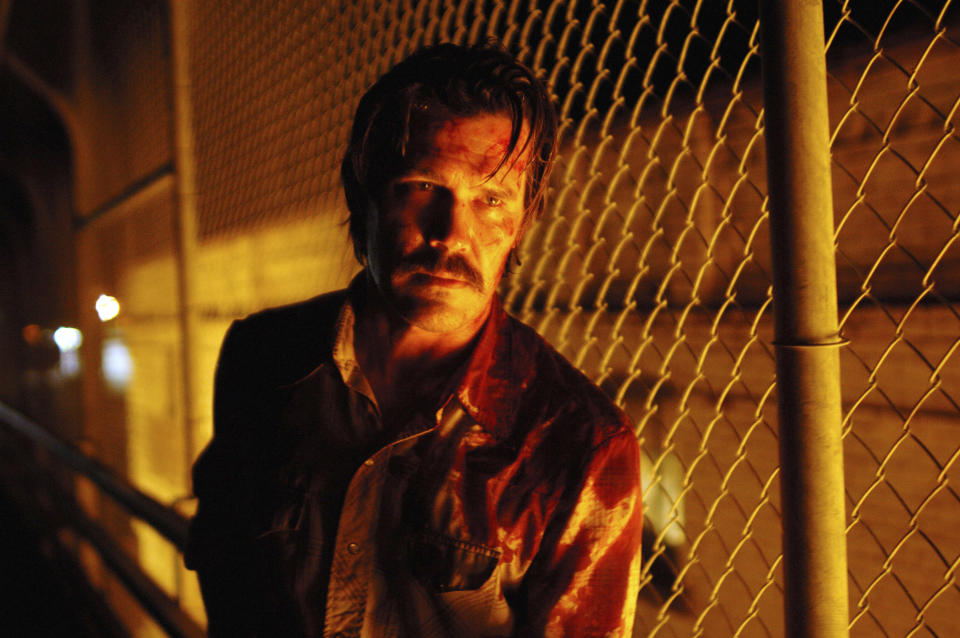
As enduringly relevant as anything the Coen brothers have ever made, “No Country for Old Men” is a breathlessly tense cat-and-mouse drama about a simple Texas guy trying to survive a world that has no mercy for him or anyone else in it — a place that’s already dim and growing darker by the day. Starting with Cormac McCarthy’s novel of the same name and then vacuum-sealing it shut with terse direction that prioritizes the threat of death above all else, the Coen brothers created a movie that absolutely drips with existential dread. Even when Anton Chigurh casts a long shadow even when he isn’t on screen, his violent memory sticking to our bones like a winter chill. “No Country for Old Men” may not have been such a surprising Best Picture winner in the immediate aftermath of “The Departed,” but it’s always something of a shock when the Academy anoints anything this good. —DE
2. “Parasite” (dir. Bong Joon-ho, 2019)

“Parasite” winning Best Picture felt like a long shot back in the early months of 2020: A ruthlessly cynical Korean thriller had no precedent for taking the ceremony’s greatest award — nothing even close to it. But Bong Joon-ho’s film and its insanely talented cast won voters over and made history as the first Korean film and the first non-English Language film to walk away with the prize. It was one of the most exhilarating wins in Oscars history, but the most impressive thing about “Parasite” is that it didn’t even need the win to be remembered. Joon-ho’s savage look at class dynamics, through the story of a poor family scheming their way into the employment of a richer clan resonates as a barbed and caustic portrait of late-stage capitalistic hustling, and how the struggle to stay afloat turns the working class against each other. It’s steeped in Korea’s own socioeconomic culture, but its themes feel universal. And more than any other film on this list, “Parasite” is also just fun, with absurdly tight direction from Joon-ho, a singular comedic tone, and incredible performances from the entire ensemble. If it feels a little embarrassing that it took 92 ceremonies for the Oscars to award a non-English-language film, at least a movie as great as “Parasite” was the one to cross the milestone. —WC
1. “Moonlight” (dir. Barry Jenkins, 2016)
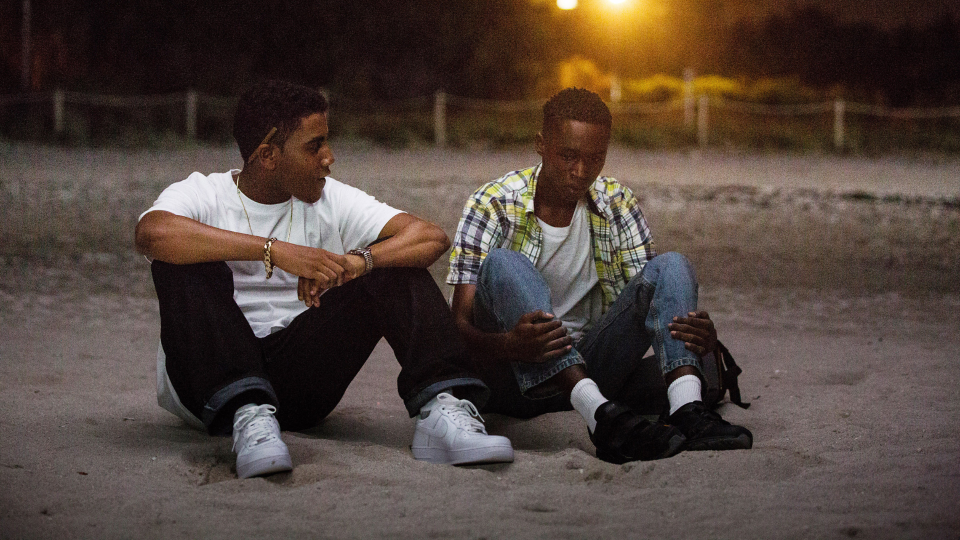
Of course the greatest cinematic accomplishment to nab best picture this side of 2000 would barely make it to the finish line, finding its way to the stage only in the clumsiest, most roundabout fashion in history. Barry Jenkins’ intimate, expressionistic queer drama channels some of the finest impulses of international filmmaking into a refreshing new context — a landmark achievement in black cinema and a gorgeous, intimate statement on the desire for companionship in an alienating world, “Moonlight” both speaks to an underserved audience and raises the bar for the art form by forging an entirely new aesthetic of isolation. One of the greatest love stories ever told might sound like Oscar bait, but no Oscar bait ever looked quite like this. Whatever happened onstage when Faye Dunaway mistakenly read “La La Land,” the error registered as an illustration of just how hard it is for daring, unconventional art to make its way into the center of Hollywood glitz. “La La Land” is fine, but thank god she had it wrong. —EK
Best of IndieWire
The 65 Best Sci-Fi Movies of the 21st Century, from 'Melancholia' and 'M3GAN' to 'Asteroid City'
Christopher Nolan Movies, Ranked from 'The Dark Knight' and 'Tenet' to 'Dunkirk' and 'Oppenheimer'
Where to Watch This Week's New Movies, Including 'Argylle' and 'How to Have Sex'
Sign up for Indiewire's Newsletter. For the latest news, follow us on Facebook, Twitter, and Instagram.

